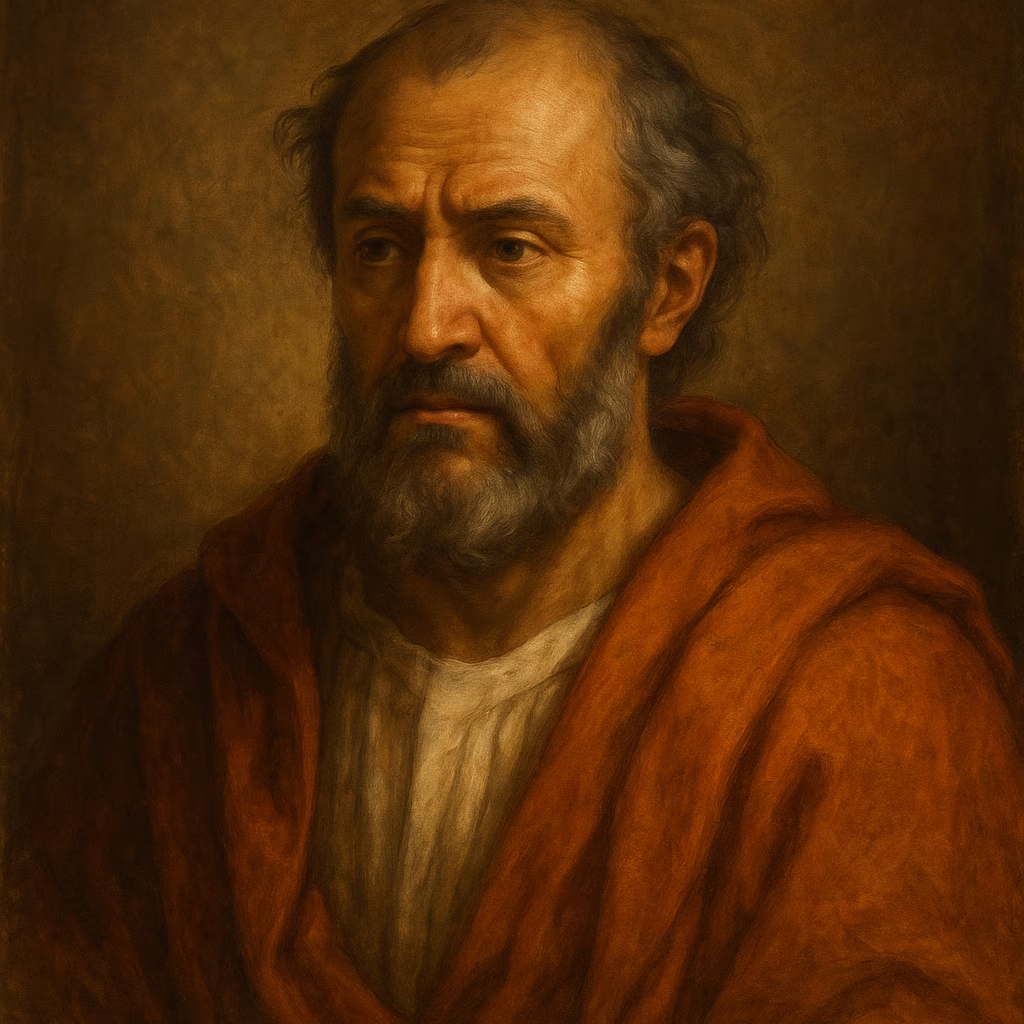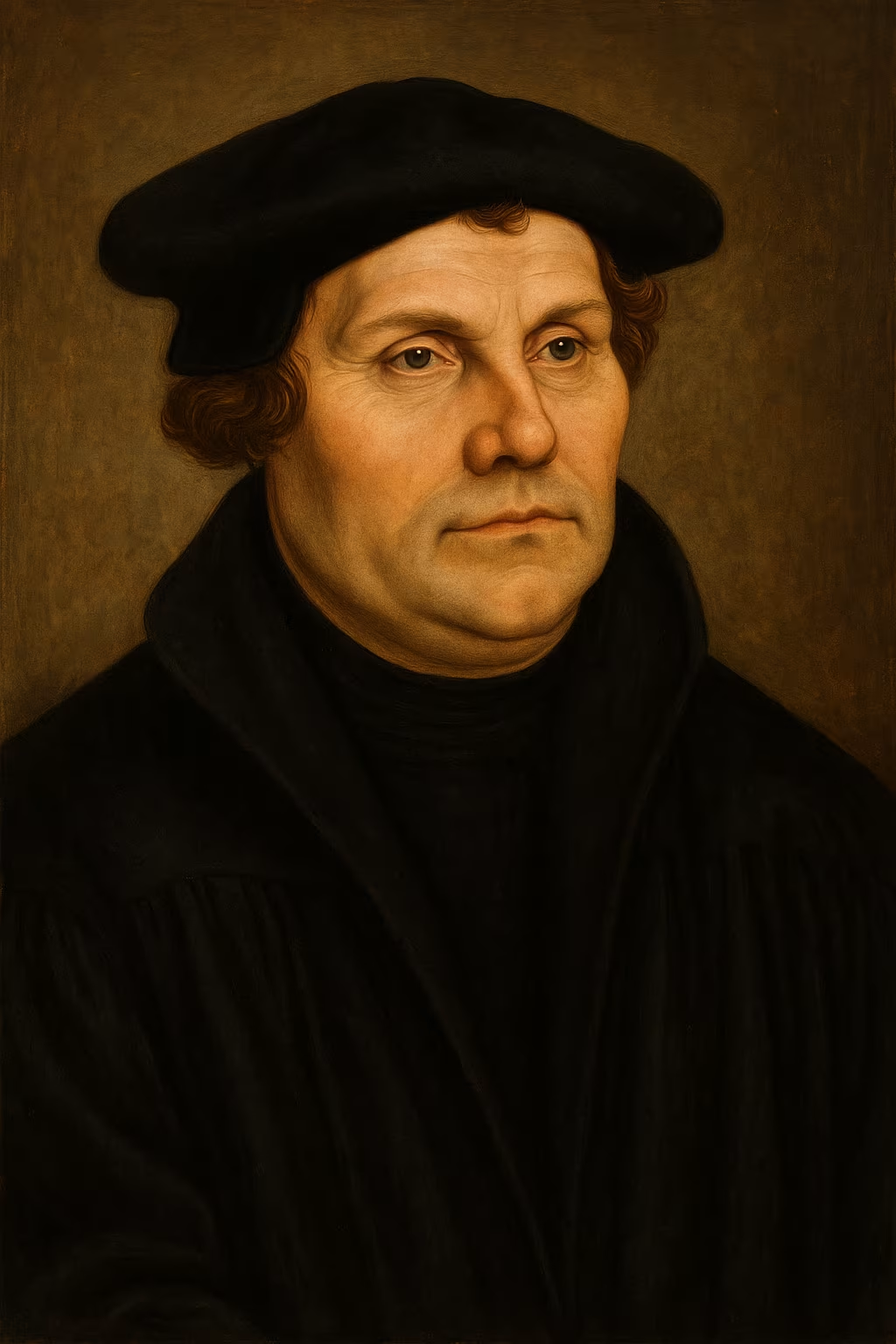Saint Augustine (354 – 430)
Quick Summary
Saint Augustine (354 – 430) was a bishop and major figure in history. Born in Thagaste (Souk Ahras, Numidia, Roman Empire), Saint Augustine left a lasting impact through Authored the Confessions, On the Trinity, and The City of God, foundational texts of Latin Christianity.

Birth
November 13, 354 Thagaste (Souk Ahras, Numidia, Roman Empire)
Death
August 28, 430 Hippo Regius (Annaba, Numidia, Roman Empire)
Nationality
Roman
Occupations
Complete Biography
Origins And Childhood
Augustine was born on 13 November 354 in Thagaste, a North African town within the Roman province of Numidia. His father Patricius served as a local decurion seeking social advancement, while his mother Monica practiced an ardent Christianity that left a deep imprint on her son. Educated first in Thagaste and Madaura, Augustine excelled in Latin grammar and rhetoric, mastering the classics of Cicero and Virgil. The multicultural environment of Roman Africa—shaped by Berber roots, Punic memories, and imperial administration—fueled his early curiosity. In Carthage he pursued higher studies, embraced the urban intellectual scene, and formed a lasting partnership with an unnamed companion who bore their son Adeodatus. This period blended ambition and restlessness, anticipating the spiritual quest that would later define his life.
Intellectual Search And Manichaeism
Around 373 Augustine encountered Cicero's lost dialogue Hortensius, awakening his hunger for wisdom. Frustrated with a literal reading of Scripture, he joined the Manichaean community, seeking a rational explanation of evil through the dualism of light and darkness. For nearly nine years he taught rhetoric while remaining an elite "hearer" among the Manichees. Gradually he perceived the shortcomings of Manichaean cosmology, especially after meeting the celebrated teacher Faustus of Milevis. Exposure to Latin translations of Plotinus and Porphyry, along with the skeptical arguments of the New Academy, widened his horizons. When he moved to Rome in 383 and secured the prestigious imperial chair of rhetoric in Milan, Augustine entered the networks of imperial politics and ecclesiastical leadership that would accelerate his transformation.
Milanese Milieu And Conversion
In Milan Augustine attended the sermons of Bishop Ambrose, whose allegorical preaching unlocked the spiritual depth of Scripture. Friendships with Christian intellectuals and engagement with Neoplatonist texts revealed a transcendent God beyond material images. Torn between ambition and conversion, Augustine withdrew to Cassiciacum in 386, composing philosophical dialogues that charted a path from rhetoric to contemplation. The episode of the "tolle lege"—the child's voice urging him to "take and read"—led him to Romans 13:13-14 and resolved his inner conflict. Baptized by Ambrose at Easter 387 alongside Alypius and his son Adeodatus, Augustine embraced a new life of Christian service. Monica's death at Ostia soon after, recounted movingly in the Confessions, sealed the spiritual journey they had shared.
Return To Africa And Monastic Experiment
Back in North Africa in 388, Augustine sold his possessions to establish a quasi-monastic community in Thagaste dedicated to prayer, study, and shared life. Summoned unexpectedly by the faithful of Hippo, he was ordained priest in 391 and later consecrated bishop in 395/396. His episcopal household became a center of learning, pastoral innovation, and social assistance in a bustling port city contested by Donatists and threatened by political instability.
Controversies And Doctrine
Augustine's episcopate unfolded through major controversies. Opposing the rigorist Donatists, he defended the sacramental unity of the Church, arguing that Christ's grace rather than a minister's worthiness guaranteed validity. Against Pelagius he articulated doctrines of original sin, prevenient grace, and divine predestination, insisting that salvation was an unmerited gift. During these struggles he composed Confessions, a groundbreaking spiritual autobiography; On the Trinity, a profound meditation on the divine mystery; and The City of God, a monumental response to the sack of Rome that outlined a Christian philosophy of history. His scriptural commentaries, sermons, and letters display a hermeneutic that blends literal, moral, and allegorical senses, rooted in pastoral realities.
Imperial Crisis And Final Years
The early fifth century witnessed the decline of Roman power. When the Vandals invaded North Africa in 429, Augustine urged perseverance and reminded Christians that their ultimate citizenship lay in the City of God. During the siege of Hippo in 430 he prayed the penitential psalms, reviewed his works in the Retractiones, and encouraged the preservation of his manuscripts. He died on 28 August 430, as the city still held out. Possidius reports that his friends safeguarded his library, enabling the transmission of an oeuvre exceeding five million words.
Sources And Reception
Primary evidence for Augustine includes his own writings, the Vita Augustini by Possidius, conciliar records, and imperial edicts. Medieval theologians from Anselm to Thomas Aquinas claimed his authority, while Reformers such as Luther and Calvin drew on his teaching about grace. Humanists and modern philosophers—from Descartes and Pascal to Hannah Arendt and Paul Ricoeur—found in his reflections on memory, language, and society a wellspring of insight. Today, digital scholarship maps Augustine's networks and analyzes his corpus, underscoring his enduring relevance across confessional and disciplinary boundaries.
Achievements and Legacy
Major Achievements
- Authored the Confessions, On the Trinity, and The City of God, foundational texts of Latin Christianity
- Articulated doctrines of grace, original sin, and predestination that influenced Catholic and Protestant traditions
- Modeled episcopal leadership that integrated monastic life, social care, and theological teaching in Roman Africa
- Developed a Christian philosophy of history and politics that shaped medieval and modern thought
Historical Legacy
Recognized across Christian traditions as a Doctor of the Church, Augustine's influence extends to modern philosophy, literature, and political theory. His analyses of time, memory, grace, and society continue to inspire scholarship and spiritual practice worldwide.
Detailed Timeline
Major Events
Birth
Born in Thagaste, Numidia, within the Roman Empire
Studies in Carthage
Moves to Carthage to study rhetoric and begins teaching
Conversion
Experiences the tolle lege episode in Milan and retreats to Cassiciacum
Baptism
Baptized by Ambrose during the Easter vigil
Episcopacy
Becomes bishop of Hippo and enters major theological controversies
Completion of The City of God
Publishes the concluding books of his magnum opus on history
Death
Dies in Hippo during the Vandal siege
Geographic Timeline
Famous Quotes
"You have made us for yourself, O Lord, and our heart is restless until it rests in you."
"Love and do what you will."
"The measure of love is to love without measure."
External Links
Frequently Asked Questions
Who was Saint Augustine?
Augustine of Hippo was a North African bishop and theologian (354–430) whose writings, including the Confessions and The City of God, shaped Western Christianity.
When did he convert to Christianity?
He experienced conversion in Milan in 386 and was baptized by Ambrose at the Easter vigil of 387.
Which controversies did he engage in?
Augustine opposed Donatism in North Africa and Pelagianism throughout the Latin West, defending the Church's unity and the primacy of grace.
What are his major works?
His most influential works include the Confessions, On the Trinity, and The City of God, alongside sermons, letters, and biblical commentaries.
Why does he remain relevant today?
Augustine's insights into memory, freedom, politics, and grace continue to inform theology, philosophy, literature, and cultural studies.
Sources and Bibliography
Primary Sources
- Augustin, Confessions
- Augustin, La Cité de Dieu
- Possidius, Vita Augustini
Secondary Sources
- Peter Brown — Augustine of Hippo ISBN: 9780520280410
- Henri-Irénée Marrou — Saint Augustin et la fin de la culture antique ISBN: 9782204065700
- Étienne Gilson — Introduction à l'étude de saint Augustin ISBN: 9782220060486
- James J. O'Donnell — Augustine: A New Biography ISBN: 9780060535383
- Carol Harrison — Rethinking Augustine's Early Theology ISBN: 9780199275304
External References
See Also
Related Figures
Specialized Sites
Batailles de France
Discover battles related to this figure
Dynasties Legacy
Coming soonExplore royal and noble lineages
Timeline France
Coming soonVisualize events on the chronological timeline
